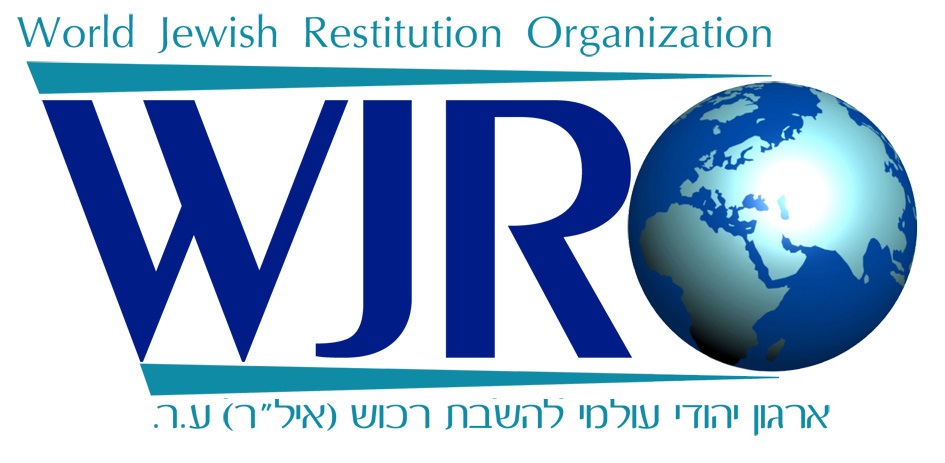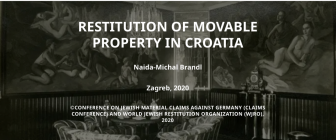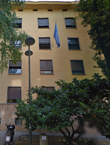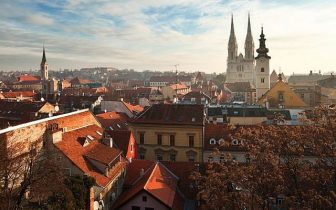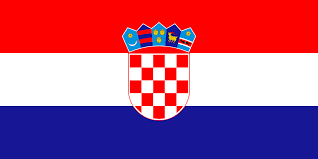
Croatia
Of the more than 25,000 Jews who lived in what is now Croatia before the Second World War, only around 6,000 survived the Holocaust. Currently, about 2,000 Jews live in Croatia.

Rijeka Synagogue
Only a small percentage of plundered Jewish communal and private property has been returned. Croatian officials across governments have recognized the need to address the exclusion of Holocaust-era property confiscations from its restitution law. Croatia endorsed the Terezin Declaration on Holocaust Era Assets and Related Issues in 2009, as well as the follow-up “Guidelines and Best Practices for the Restitution and Compensation of Immovable (Real) Property” in 2010. In a February 15, 2012, speech to the Israeli Knesset, then-President Josipović apologized for Croatia’s role in the Holocaust and pledged that Croatia would address the exclusion of Holocaust victims from its restitution laws. Unfortunately, there has been little progress on restitution in Croatia since it endorsed the Terezin Declaration.
In 2012, the government proposed a foundation to address some of the injustices perpetrated against victims of the Holocaust. The foundation was to have used proceeds from the sale of heirless Jewish property to provide social welfare to Holocaust survivors in need, symbolic payments to survivors excluded from the restitution process, and funds for Holocaust education. There has been, however, no progress on the proposed foundation, and Croatia has not passed legislation on heirless property.
Croatia holds the Presidency of the International Holocaust Remembrance Alliance (IHRA) from March 1, 2023 to February 29, 2024. It is hoped that progress will be made during this time.
The claims process for restitution of private property, under the Act on Restitution/Compensation of Property Confiscated During the Yugoslav Communist Rule (1996, amended in 2002), excluded almost all Jewish Holocaust survivors who were property owners. The law covered only property confiscated after May 1945 by the Communist regime, not property confiscated during the Holocaust. Further, only Croatian citizens and citizens of countries with bilateral treaties with Croatia could file claims, thus excluding Holocaust survivors and their heirs who fled Yugoslavia during the Holocaust or the Communist period. In particular, survivors and their heirs who immigrated to Israel were forced by the Communist government to renounce their Yugoslav citizenship and any claim to their immovable property. Even those survivors and heirs fortunate enough to qualify under the restitution law faced long delays, minimal compensation, and other difficulties.
In 2011, following a Croatian Supreme Court case holding that the restitution law inappropriately discriminated against foreign citizens, the government proposed legislation to authorize claims by foreign citizens, but the legislation has not been enacted.
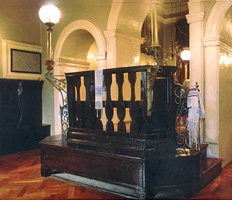
Dubrovnik Synagogue
The Jewish Communities in the Republic of Croatia submitted claims for 135 communal properties under the 1996 law but only a limited number of non-cemetery properties have been returned. In December 2014, Croatia took the long-awaited step of providing a substitute property in partial compensation for property owned by the Chevra Kadisha (burial society) before the Holocaust. However, there has been no subsequent progress on Jewish communal properties.
In 2012, the government proposed a foundation to address some of the injustices perpetrated against victims of the Holocaust. The foundation was to have used proceeds from the sale of heirless Jewish property to provide social welfare to Holocaust survivors in need, symbolic payments to survivors excluded from the restitution process, and funds for Holocaust education. There has been, however, no progress on the proposed foundation, and Croatia has not passed legislation on heirless property.
In October 2022, WJRO, in cooperation with the Croatian government, released the publication of an extensive report that presents a historical analysis and partial list of cultural objects looted from Jews and others by the Croatian fascists – the Ustaše – during the Holocaust and that after World War II were nationalized by the Communist government and distributed to Croatian state institutions. A claims process has yet to be established. The report can be found at: https://art.claimscon.org/work-provenanceresearch-archives/croatia-report-restitution-of-moveable-property/
In 2022, the Croatian Ministry of Culture also established an expert group on provenance research.
Resources and Links
ESLI Overview of Immovable Property Restitution/Compensation Regimes – Croatia
European Shoah Legacy Institute
December 2016
US Department of State – Justice for Uncompensated Survivors Today (JUST) Act Report
July, 2020 – Croatia – Contents on page 45
Restitution of Moveable Property in Croatia
Zagreb, 2020 (Released October 2022)
Relevant Press Releases and News
The World Jewish Restitution Organization (WJRO) Welcomes Croatian Government’s Decision to Recognize Jewish Gravesites as Cultural Heritage Sites
September 22, 2024



